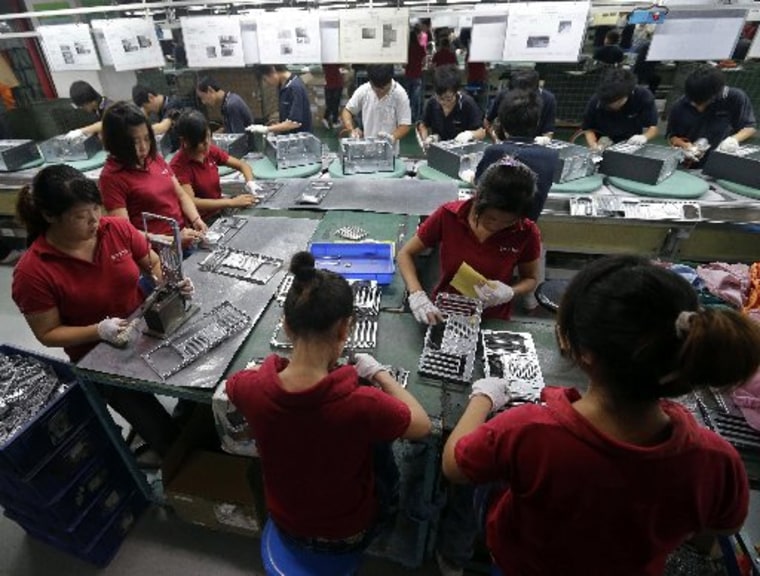Workers at China's Foxconn plants may soon have more power in the workplace. The prominent manufacturer of Apple products and other hardware has announced that it is expanding the role of junior staff in its factories' union leadership, and has already begun holding elections to determine which staff members will sit on the union committees. However, observers warn that this might not lead to significant reform.
"Given the track record of Foxconn on labor rights...we would all be wise to be skeptical until we see evidence that this is going to translate into something meaningful," said Scott Nova, the executive director of the Worker Rights Consortium.
According to the University of Singapore sociologist Qi Dongtao [PDF], 73.7% of the Chinese workforce belongs to a single union: The All-China Federation of Trade Unions (ACFTU), which often appears to work against its own members on behalf of employers or the Chinese Communist Party. If Foxconn factory workers were granted an active decision-making role in their union, it would represent a significant break from national historical precedent—however, merely holding elections does not make this inevitable.
Isaac Shapiro of the Economic Policy Institute said two important questions remain unanswered: "One, what type of authority would these committees [of elected workers] have? Two, how would you ensure that they are truly independent of management and can do what they want without repercussions?"
The historical precedents are not promising. In 2002, Reebok attempted to conduct democratic union elections in a factory run by the Shun Da Sporting Good Corporation in the city of Fuzhuou. Five years later, labor researcher Peter Lee declared the results "extremely disappointing."
"Working conditions have deteriorated noticeably, and the trade union is doing more or less nothing to further workers’ interests," he wrote. "Interviews with workers uncovered widespread dissatisfaction and distrust towards the current union."
Nova argued that Reebok was not to blame. "In my view, Reebok made a serious effort ... [but] they were simply not able to sustain it," he said.
That does not mean that reform is impossible at Foxconn, he went on. However, it would be an even more difficult task for Foxconn than for Reebook, which was trying to reform "a relatively small footwear factory, not the largest employer in China."
"We believe this could be done," said Nova, "but it requires tremendous effort on the part of Apple and Foxconn," including a willingness to resist the Chinese government, make meaningful concessions to the workers, and risk damage to their profit margin.
In holding open elections, Foxconn is adopting one of the recommendations of the Fair Labor Association, which investigated claims of abuse at the company's factories in 2012. Though the FLA has given high marks to Foxconn for its other tentative reforms—such as reducing excessive overtime—Shapiro and Nova wrote a joint paper arguing that FLA and Apple were giving Foxconn "undue credit for labor rights progress."
